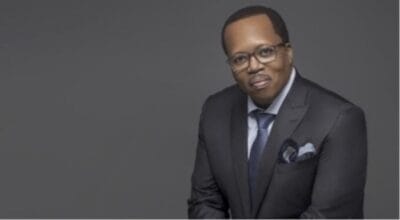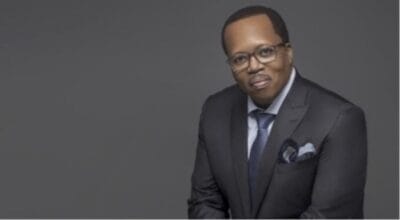
Dewayne Hart is a distinguished cybersecurity leader whose insights bridge military precision and corporate strategy. A retired U.S. Navy Chief Petty Officer, he laid the groundwork for his expert mindset in technology defence before founding Secure Managed Instructional Systems (SEMAIS) in 2014, advising clients such as PwC, Kaiser Permanente, and U.S. federal agencies.
Beyond his consultancy, Dewayne has earned recognition as an author and thought leader. His 2022 book, The Cybersecurity Mindset: A Virtual and Transformational Thinking Mode, and his podcast The Chief of Cybersecurity showcase his talent for translating complex threats into actionable, human-centred guidance.
Represented by The Champions Speakers Agency, Dewayne is also a leading keynote speaker who continues to inspire global audiences. Alongside his ongoing work as CEO and Founder, he delivers cutting-edge insights on leadership, AI, workforce readiness, and cyber resilience.
Q1. What inspired your transition from military service to cybersecurity, and how has that background shaped your approach to the field?
Dewayne Hart: “When I retired from the military about 15 years ago, I was supposed to be a leadership coach. And then during the time I was studying for my master’s degree programme, I walked into the office and I noticed that a friend of mine was studying for his CISSP certification.
“I picked up the book, browsed through it a couple of times and said, “You know what? I think that I want to branch into the cybersecurity industry.”
“And so after that I started to study the CISSP certification, passed it, and then from there I became one of the people that were interested in cybersecurity. But later on I started to do some other things such as writing, starting the podcast, and here I am today working in the cybersecurity industry. It has been very rewarding.
“But I thank my friend for leaving that book on the desk because if he had not left that book there, I would probably have been a leadership coach today. Now, there’s nothing wrong about being a leadership coach, but I think that the cybersecurity industry is much more rewarding.”
Q2. Many organisations ask, “How can we become proactive rather than reactive?” From your experience, how should businesses assess and build their security capabilities to stay ahead of threats?
Dewayne Hart: “As I have walked through the industry and met a great number of people working from all walks of life, the number one question they always ask me is: how can we become proactive?
“My answer is always standard and it’s always the same. You need to understand your security capabilities. Your security capabilities make a determination on whether you know what’s on your enterprise or whether you do not know what’s on your enterprise. It can also branch into cyber visibility. Do you have visible indication of where your weaknesses are?
“There are some intricate programmes that must work in tandem in order for leaders to understand their security capabilities. One is your asset management programmes. Two is your configuration management programme.
“Three is your vulnerability management programme. If you can take those three programmes and have them work in tandem, you can understand your security capabilities. But also, too, adding in your cyber tools and your cyber threat intelligence programmes — those are going to help you out as well.
“If you add those into your asset management, your configuration management and your vulnerability management programme, you will have an accurate indication of your security capabilities. Because if you don’t have an accurate indication of your security capabilities, then this is how you create those blind spots.
“Blind spots are those areas of your enterprise that are sneaking under the radar. They only become active when hackers find out where they are. So if you understand your security capabilities, then you can beat hackers to the finish line.”
Q3. Traditionally, the ‘human element’ has been dubbed the weak link in cybersecurity. Why do you argue that culture, not just individuals, is the real vulnerability—and how can companies strengthen it?
Dewayne Hart: “We often have a conversation saying that humans are the weakest link when it comes to cybersecurity. I like to take it to the next level and state that a dysfunctional cybersecurity culture is the weakest link.
“Think about culture as people, but also looking at the way that the people operate. Look at the enterprise and see that you have silos. Silos are people that work in their own programmes and their own ways. When we can remove those silos, then we have people that work as a group and people that buy into the cybersecurity culture.
“When you have a functional cybersecurity culture, then you can always beat hackers to the finish line. This is one of the strongest aspects that great leaders have. They are able to polish up a cybersecurity environment and build a functional cybersecurity culture.”
Q4. You often describe cybersecurity as a ‘quality of life’ issue. Why is framing it this way so powerful, and what responsibility does that place on individual users?
Dewayne Hart: “As I begin to look into my past speaking events and as I travel to future speaking events, I’ve always said that I want my audience to look at cybersecurity as a quality-of-life issue. Here’s why. We live in a state now where cybersecurity is part of our lives. We cannot survive without cybersecurity and technology.
“Humans have to take it very seriously because it’s a quality-of-life issue. Let’s just imagine if, per se, Facebook goes offline. Imagine how people’s lives change. Imagine how many of the other social media platforms go offline.
“Imagine if the internet was to just shut down for 24 hours. It seizes business operations. Our quality of life is diminished. We can’t go to the bank and get money. We can’t go online, we can’t use our cell phones.
“So, I’ve always told my audiences that you have to look at cybersecurity as a quality-of-life issue. And everyone is held responsible. This is where individual responsibility comes to the surface. Think about it: what is it that you are responsible for when it comes to cybersecurity? Because it’s your quality of life.
“This is what I always like to preach to my audience too. Because if we were in a race and we are in lane A and hackers are in lane B, the one that makes it to the finish line wins. So if you want to keep your quality of life at a high level, you’ve got to find ways to beat hackers to the finish line.”
See more stories here.
